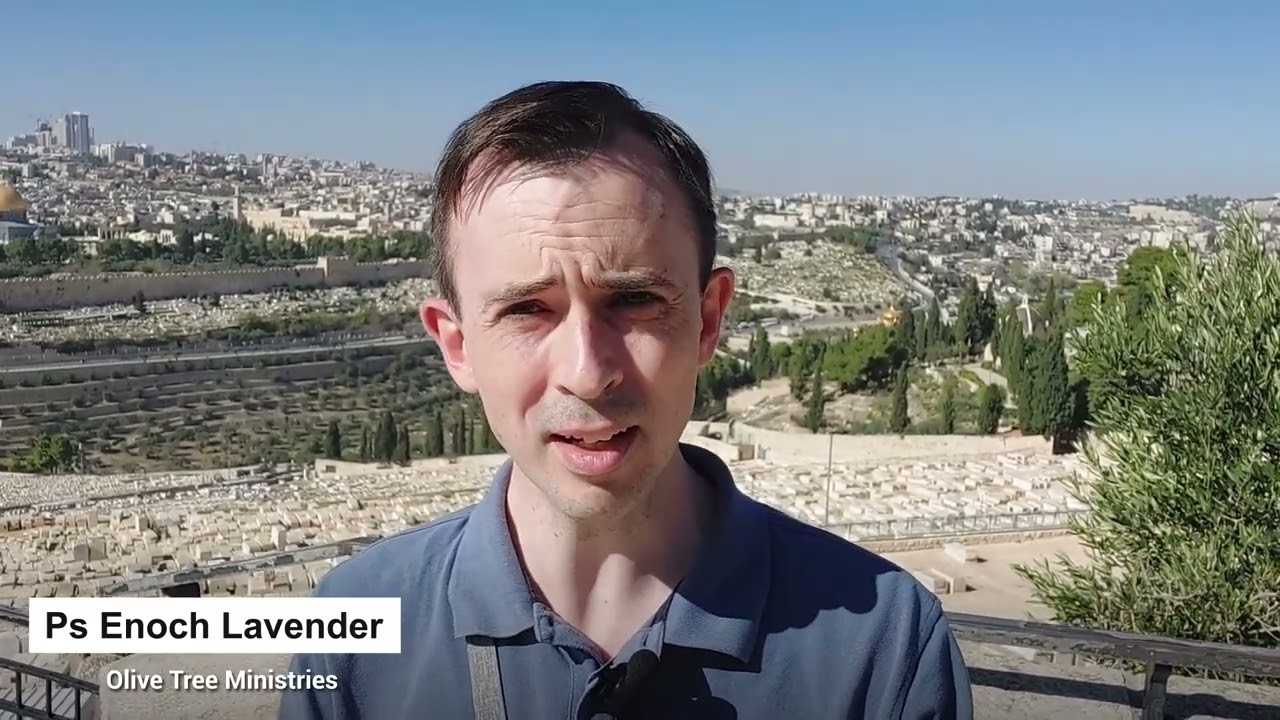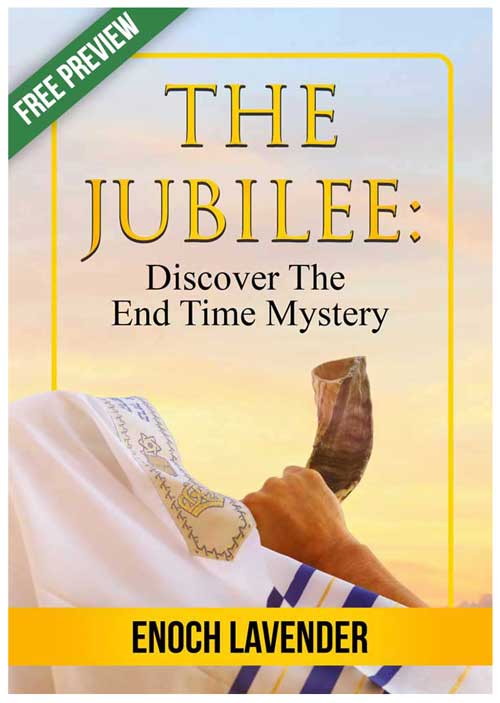Is there a link between the ancient practice of the Jubilee and Jesus’ soon coming return to earth? If so, what insights can we learn from this link as we look forward to Jesus’ return?
The Trumpet will Sound
For the Lord Himself will descend from heaven with a shout, with the voice of an archangel, and with the trumpet of God. And the dead in Christ will rise first. (I Thes 4:16)
One central feature of Jesus’ Return that theologians of all persuasions can agree upon is that it will be marked by the sounding of a loud trumpet. Bearing this in mind, let us turn to Leviticus 25, a chapter dedicated to the topic of the Jubilee year cycles:
Then you shall cause the trumpet of the Jubilee to sound on the tenth day of the seventh month (Lev 25:9)
In other words, the Jubilee, like Jesus’ Return, is announced with the Trumpet. What would this have looked like and is there a link between the two trumpet soundings?
Life in the ancient world was tough, and many lived as farmers who were completely dependent on the produce of their fields. Those finding themselves in severe financial hardship could temporarily sell their land and even themselves into slavery. The laws of the Jubilee then stipulated that a friend or relative could ‘redeem’ or buy back the land and set those who had become slaves free. If no redeemer was found, God Himself decreed that the debts of the poor were to be cancelled, the slaves set free and His people restored to their ancestral inheritance in the 50th year, the year of Jubilee.
Can you imagine the joy that the sounding of this Jubilee Trumpet would have caused in ancient Israel? At this once in a generation trumpet blast, slaves were set free across the nation and the poor were released from their long-held debts. In the streets of Israel long lost loved ones would be tearfully embracing and rejoicing together in the redemption of God. Could this ancient joy at the sound of the Jubilee Trumpet be a foretaste of the much greater joy to come at Jesus’ Return?
There are only four portions of the Bible that directly mention the Jubilee. Two of these passages are technical descriptions of the laws surrounding the Jubilee, but the other two passages are of great interest to us as we explore the links between the Jubilee and the Trumpet of Jesus’ Return.
The Glory and the Trumpet
The twelve tribes of Israel had gathered at the foot of Mount Sinai only three months after being set free from Egypt. In Egypt and at the Red Sea they had dramatically witnessed the power of God through mighty miracles and signs that exceed anything most of us have ever experienced. Yet even the crossing of the Red Sea paled into insignificance compared to the encounter with the Glory of God which they were about to experience in its full manifestation on Mount Sinai.
Moses describes a thick cloud enveloping the mountain, thunder, lightning, smoke and the entire mountain shaking as the Lord Himself physically descended upon the Mountain. Many scholars describe this dramatic appearance of God as being a powerful prophetic preview of the day when Jesus Himself will physically descend from the heavens. It is crucial then to note that God’s awesome descent on the mountain was marked with an exceeding long and loud trumpet blast:
When the trumpet (yobel) sounds long, they shall come near the mountain…..
And when the blast of the trumpet sounded long and became louder and louder, Moses spoke, and God answered him by voice. Then the Lord came down upon Mount Sinai
(Ex 19:13, 16-20, emphasis added)
The word used here for trumpet is the word Yobel or Jubilee. In other words, the long blast on the mountain signifying God’s descent was also a Jubilee Trumpet. Israel itself was truly in the midst of an amazing Jubilee experience, being set free from slavery and being on their way to inherit the promised land.
Could this Exodus 19 descent of God’s awesome manifest presence, marked by the sounding of the Jubilee Trumpet, be a foreshadow of Jesus’ Return?
Entering the Promised Land
In our world today it is not uncommon for bitter strife to erupt in families as they contest an inheritance. In the same way, while Israel’s inheritance was in the Promised Land, many battles were ahead of Joshua as he led the people across the Jordan river.
Their first hindrance seemed impossible. They were charged with taking the impenetrable city of Jericho. Preparing for battle, Joshua encounters the Angel of the Lord, who gives him very specific battle instructions.
Before we look at these instructions, let us turn our minds back to the Jubilee practice for a moment. In Leviticus chapter 25, God instructed His people to farm the land for six years and then let it rest in the seventh year. After seven such seven-year cycles, in the 50th year, the Jubilee would be proclaimed with the Trumpet sound.
As the people of Israel come to Jericho under Joshua’s leadership, our first hint of a link with the Jubilee is God’s rather unusual battle instruction to His people. He commanded them to go in circles around the city for seven days and then finally seven times on the seventh day.
After these cycles were literally completed, the people were to sound the Trumpet:
It shall come to pass, when they make a long blast with the ram’s horn, and when you hear the sound of the trumpet, that all the people shall shout with a great shout; then the wall of the city will fall down flat. And the people shall go up every man straight before him.
(Josh 6:5, emphasis added)
While our English translations use the word “ram’s horn” or “trumpet” throughout the story of the battle of Jericho, the primary word for trumpet used repeatedly throughout this chapter is Yobel or Jubilee. In other words, having marched around the walls in seven cycles, they were now to announce the Jubilee with the sound of the Jubilee Trumpet. And as they did, the walls would come crashing down and they would begin to enter their inheritance!
Joshua and Jesus
Moses the great leader and prophet who brought the people of Israel out of Egypt, told the people of a ‘Prophet like me’ (Deut. 18:15) who would come. While Moses brought people to the edge of the promised land, it was only his successor, Joshua who was able to bring the people into their inheritance.
Jesus’ name in Hebrew is simply another form of the name Joshua. Jesus is truly the greater Joshua who came after Moses and is the only one who can truly lead God’s people into their inheritance and into the Kingdom to come. He will one day soon come to earth to setup His Kingdom and to reign upon the throne of His father David, ushering in the Jubilee and His Messianic reign. What a day it will be!
This is an excerpt from the upcoming book ‘The Jubilee: Discover The End Time Mystery”.
To pre-order a digital or print copy, please go to www.olivetreeministries.tv/preorder

Enoch Lavender was born in Australia, raised in Norway, spent time living in China and is now based in Melbourne, Australia. He has been studying Hebrew and the Jewish roots of our faith for the past decade, and has a keen interest in the Middle East from a Bible prophecy perspective.
Contact Enoch and Olive Tree Ministries



